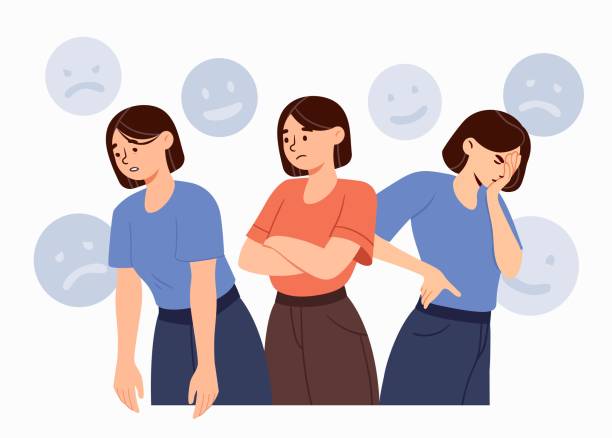What Are the Unspoken Symptoms of Menopause?
What Are the Unspoken Symptoms of Menopause?
Have you ever wondered what it will feel like when Menopause starts? Will you even know?
Menopause is often associated with a few well-known symptoms like hot flashes and night sweats, but what many don’t realize is that this natural life stage can bring a range of unspoken symptoms that affect not only your body but also your emotions and mental well-being. If you’re approaching menopause, you might be feeling a little uncertain about what’s coming. Let’s dive into some of the lesser-known, but equally important, symptoms of menopause that women often experience and what the overlooked side effect of menopause might be.
- Emotional Rollercoaster: More Than Just Mood Swings
- Cognitive Decline: Brain Fog and Memory Issues
- Physical Discomfort Beyond Hot Flashes
- Changes in Libido: The Silent Shift
- Sleep Disturbances: More Than Just Insomnia
- Digestive Issues and Weight Fluctuations
- The Overlooked Side Effect of Menopause: Loss of Confidence
- Coping Strategies and Solutions
Emotional Rollercoaster: More Than Just Mood Swings
One of the unspoken symptoms of menopause that often goes under the radar is the emotional turmoil. Yes, we’ve all heard about the infamous mood swings, but for many women, it goes much deeper. Anxiety, irritability, and even depression can hit hard. These emotional symptoms of menopause can leave you feeling overwhelmed, like you’re losing control of your emotions. You might find yourself feeling more anxious than usual or snapping at your loved ones for no apparent reason.

It’s important to know that these feelings are normal. The hormonal changes your body is going through during menopause can affect your brain’s chemistry, leading to these emotional ups and downs. If you’re feeling more irritable or anxious than usual, know that you’re not alone. Many women struggle with these emotions, and it’s okay to seek support or talk to a healthcare professional.
Cognitive Decline: Brain Fog and Memory Issues
Another unspoken symptom of menopause is cognitive decline, often referred to as “brain fog.” You might find it harder to concentrate, forget little things more often, or feel like your thoughts are just a bit slower. This menopause brain fog can be frustrating, especially if you’re juggling work, family, and other responsibilities.

Memory problems during menopause are quite common and can affect your everyday life in surprising ways. Whether it’s forgetting where you put your keys or struggling to remember important details at work, cognitive changes can feel unsettling. These memory lapses are typically temporary, but if they start to impact your quality of life, it’s worth discussing with your doctor.
Physical Discomfort Beyond Hot Flashes
While hot flashes tend to steal the spotlight when it comes to menopause symptoms, there are other physical discomforts that many women experience. Joint pain, muscle stiffness, and changes in skin texture—such as dryness and thinning—can also accompany menopause. These symptoms are often attributed to aging rather than menopause itself, but the reality is that your hormonal shifts play a big role here.
If you notice your skin becoming drier or your joints aching more than usual, don’t be too quick to chalk it up to getting older. These symptoms of menopause are common and can be managed with proper care. Staying active, moisturizing your skin, and maintaining a healthy diet can help alleviate some of the discomfort.
Changes in Libido: The Silent Shift
Another symptom of menopause that doesn’t get enough attention is the change in sexual desire. Many women experience a decrease in libido during menopause, along with physical changes like vaginal dryness that can make intimacy uncomfortable. These changes can be difficult to talk about, even with close friends or partners, but they’re a natural part of the menopause transition.
Menopause low libido is often tied to hormonal fluctuations, but it’s important to address these concerns openly. Vaginal dryness can be managed with over-the-counter products, and talking to your partner about how you’re feeling can go a long way in maintaining intimacy. Don’t shy away from discussing sexual health with your healthcare provider, as they can offer solutions that can improve your quality of life.

Sleep Disturbances: More Than Just Insomnia
Sleep disturbances are a common but under-discussed symptom of menopause. It’s not just insomnia that you might be dealing with—night sweats, waking up frequently, and feeling restless are all part of the package. Poor sleep can affect your mood, energy levels, and even contribute to the emotional symptoms of menopause, like irritability and anxiety.

The good news is that there are ways to improve your sleep quality during menopause. Establishing a calming nighttime routine, avoiding caffeine late in the day, and keeping your bedroom cool can all help reduce sleep problems. If night sweats are a major issue, consider wearing moisture-wicking pajamas or using cooling sheets.
Digestive Issues and Weight Fluctuations
Digestive problems like bloating and gas can also be part of the menopause experience. The hormonal changes of menopause can slow down your digestion, leading to uncomfortable bloating and irregular bowel movements. This can be frustrating, especially if you’ve never had digestive issues before.
Along with digestive discomfort, many women also notice weight gain during menopause. This is often due to changes in metabolism as well as a decrease in muscle mass. Managing weight during menopause can be challenging, but staying active and eating a balanced diet rich in fiber can help you feel better in your body.
The Overlooked Side Effect of Menopause: Loss of Confidence
One of the most overlooked side effects of menopause is a decline in confidence. The combination of emotional, cognitive, and physical changes can leave you feeling like you’re not yourself. The weight gain, memory lapses, and emotional highs and lows might make you question your abilities or self-worth. It’s easy to see how menopause can take a toll on your self-esteem.
But here’s the thing—menopause doesn’t define you. While the symptoms may feel overwhelming at times, it’s important to remember that they are temporary. Boosting your confidence during menopause can start with self-compassion. Accept that your body is changing, and focus on the things that make you feel good, whether that’s spending time with loved ones, pursuing hobbies, or taking care of your health.
Coping Strategies and Solutions
Managing these unspoken symptoms of menopause may feel daunting, but there are ways to cope. Exercise can do wonders for both physical and emotional symptoms, improving mood, boosting energy, and helping with weight management. Eating a balanced diet rich in nutrients can support your body through this transition, while prioritizing self-care can help you manage stress and anxiety.
Don’t hesitate to reach out for support, whether it’s from friends, family, or a healthcare professional. Joining a community of women going through the same thing can also provide comfort and remind you that you’re not alone in this journey.
Conclusion
Menopause is a unique experience for every woman, and while it comes with its challenges, it also offers an opportunity to better understand your body and take control of your health. By recognizing the unspoken symptoms of menopause—emotional changes, cognitive shifts, physical discomfort, and the overlooked loss of confidence—you can better prepare for this stage of life. Remember, you’re not alone, and there’s plenty of support available to help you navigate the unspoken side of menopause with confidence
Read on about Menopause:
Best 10 Smoothies for Women during Menopause
11 Menopause Supplements that actually work



Privacy Policy | Terms & Conditions | Disclaimer | Cookie Policy

